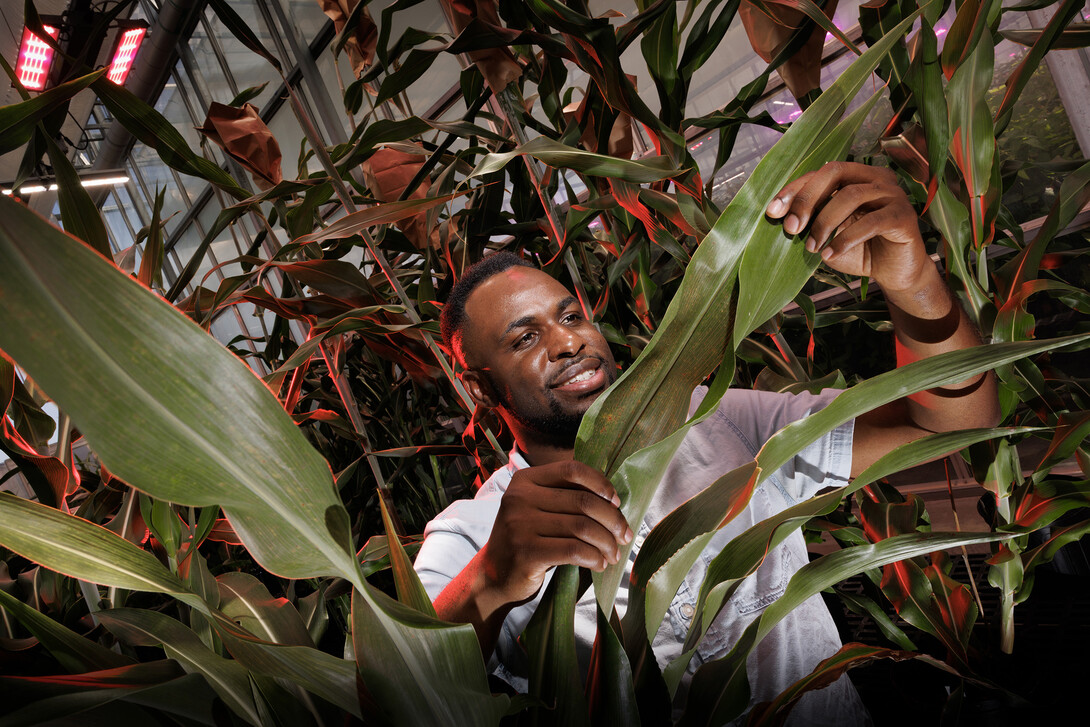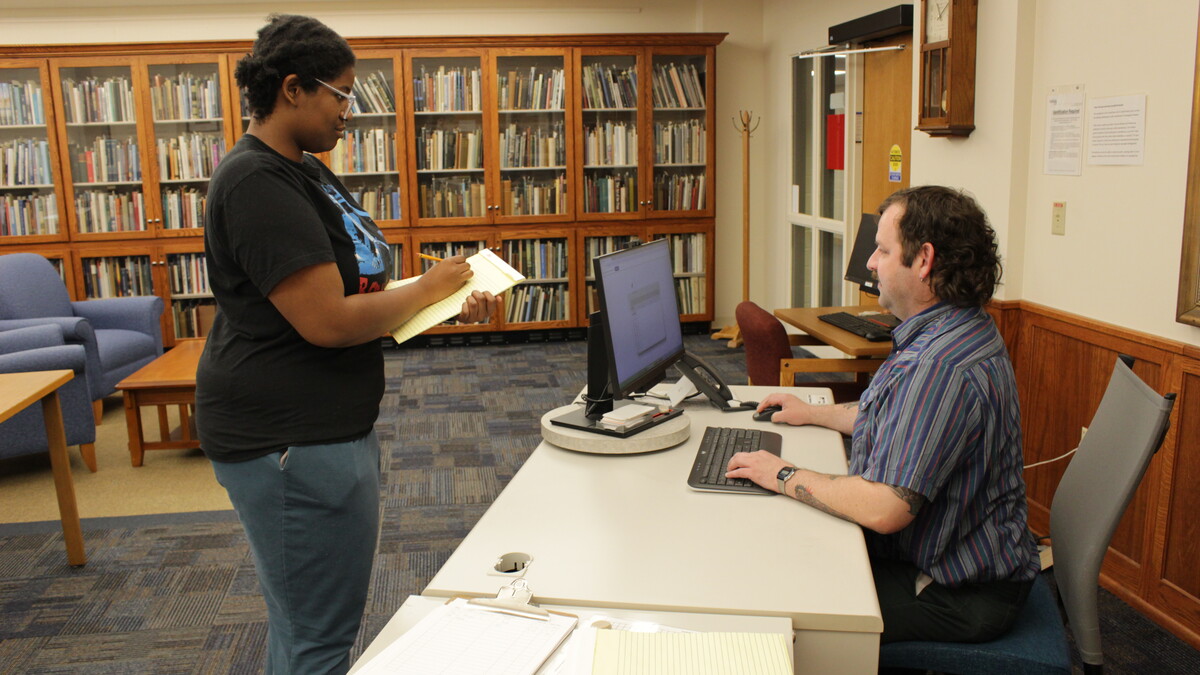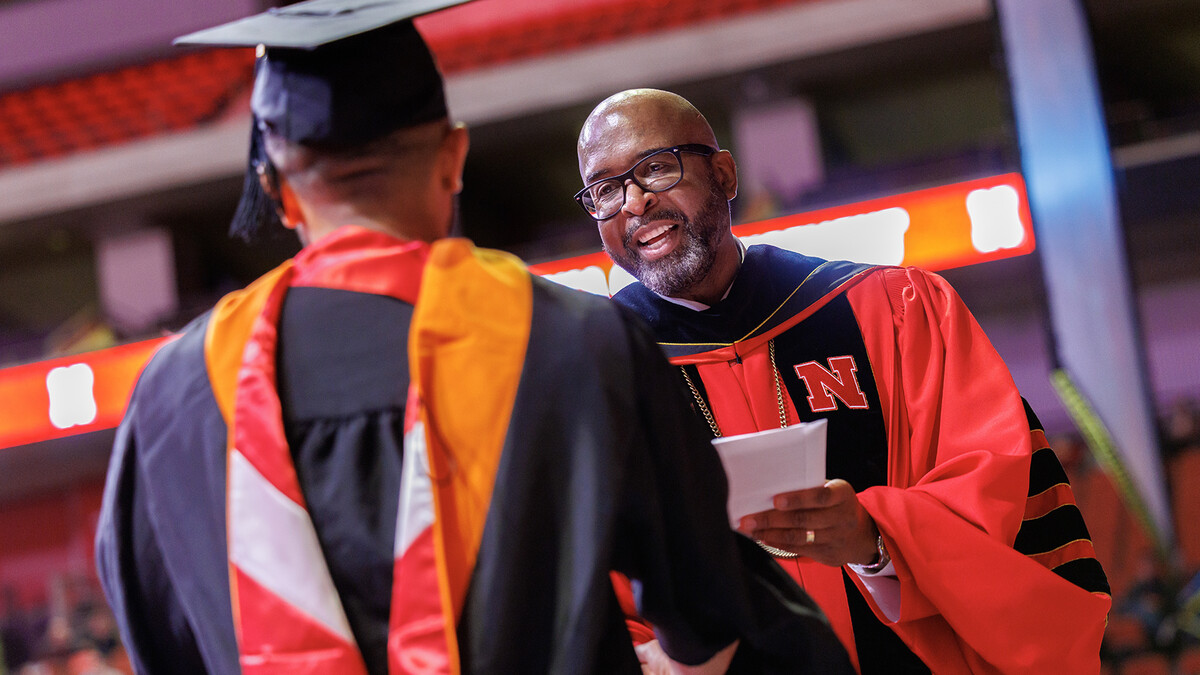
In today’s job market, expertise in artificial intelligence or plant biology are both in high demand. Finding one person with expertise in both is quite rare.
Enter Michael Tross, a doctoral student advised by James Schnable, Charles O. Gardner Professor of Agronomy.
Based on this rare combination of skills, Tross was selected as an artificial intelligence/plant biology intern at X, a semi-secret research and development facility and organization founded by Google in Mountain View, California. The company’s mission is to invent and launch “moonshot” technologies — pursuing things that sound impossible, but if done, could redefine humanity for the better. Tross worked in the X labs from February to June.“I applied for this internship because the job description seemed to perfectly fit my area of research and I wanted to gain industry experience since ultimately, my goal is to get a position in the private sector,” Tross said.
Although he isn’t allowed to discuss exactly what he did during his internship, according to the job description of the internship he applied for, Tross worked with a team of inventors, scientists, engineers and entrepreneurs attempting to develop a plant biology-aware artificial intelligence system to inform plant design and engineering experiments. The ultimate goal of the project is to enable a new era of agriculture to feed the world, be energy, nitrogen, water and land-use efficient, sequester carbon and create new high-impact applications for plant-based products.
“I learned key technical skills surrounding AI models, plant biology and team dynamics in an industry setting,” Tross said. “I was able to network with individuals working in different parts and vastly different fields of Google, giving me very different perspectives on science. This experience highlighted my scientific biases as a core biologist and revealed different ways to solve important problems in the field of biology.”
Tross said that apart from the really cool moonshot science, it was easy to access, share ideas and receive direct input from high-level managers. He was able to interact with the CEO of X on a weekly basis, both in small meetings and during casual walks down the hallway to grab coffee.
“I have made lifelong friends in totally different fields whom I otherwise may not have even crossed paths within this lifetime,” Tross said. “I have already started to apply these skills to my own personal research and will continue to do so throughout my professional career.”
Tross’ doctoral research at the University of Nebraska–Lincoln focuses on building and testing new artificial intelligence models that can do better jobs of analyzing both sensor data collected from large corn and sorghum genetics experiments and using quantitative genetic techniques to combine the output of those artificial intelligence models with genomic data to better understand the genes that control differences in how crops grow and perform in different environments.
Going from his first job teaching high school woodworking in Sandy Point, a small island of Saint Kitts in the Caribbean Sea, to working in research at the intersection of AI and plant biology in Lincoln, and Mountain View, California, may seem a stretch. But Tross said his path has been mostly fun, exciting and challenging.
“It’s always surreal to think about where I started to where I am now,” Tross said. “It would not be possible without the support of my family, mentors and friends.”







